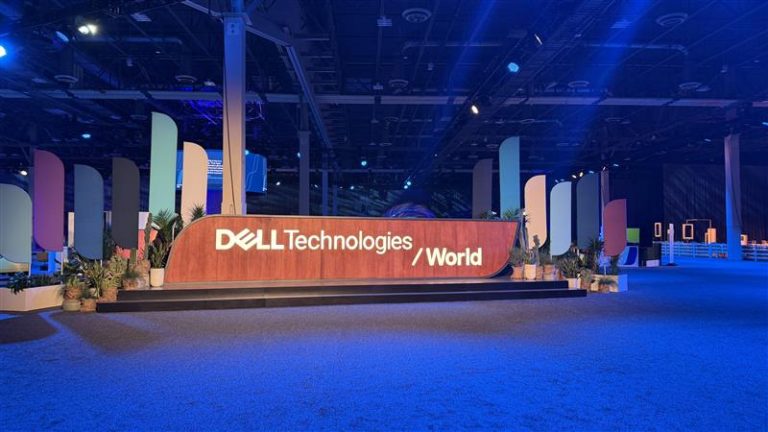Innovating the Cosmos: How the New Space Race Sparks Unprecedented Technological Advancements
The New Space Race: A Breeding Ground for Innovation
The current space race is capturing headlines and sparking public interest in the possibilities of extraterrestrial exploration. For technology innovators, this surge of interest presents a plethora of exciting opportunities. It has introduced a rapid, ‘Silicon Valley’ style innovative approach to a sector that was traditionally dominated by government entities.
In the UK, efforts to re-enter the space arena are underway, with Transport Secretary Grant Shapps announcing that rockets will be able to launch from UK soil in 2022. Plans for spaceports are in place for Cornwall, Scotland, and Wales, signaling a new chapter in UK space endeavors.
Investments Galore!
The emergence of companies like SpaceX, Blue Origin, and Virgin Galactic has fostered a vibrant, private sector-driven ecosystem in space technology. Startups in this space are offering innovative and customer-centered services. Morgan Stanley predicts the global space industry will exceed £730 billion in revenue by 2040, marking it as a significant opportunity for venture capital and private equity investment.
In the second quarter of 2021 alone, new space exploration attracted £3.3 billion in investments, poised to surpass the total of £6.6 billion from 2020, as reported by Space Capital. Over the past decade, equity investments have reached £145 billion across 1,533 companies within this sector. The optimism stems not only from the burgeoning space industry but also from the downstream product innovations that influence our daily lives on Earth due to technology transfer.
UK Tech Innovation on the Rise
The UK tech scene continues to flourish. According to the ‘Future UK Tech Built’ report for 2021, UK venture capital investment is ranked third globally, achieving a record £10 billion in 2020, even amidst challenging circumstances. Deep tech investment in the UK increased by 17% during the same year, the highest growth rate worldwide.
Within the UK, the space industry is experiencing a boom. Research from the ‘Size and Health of the UK Space Industry’ report, commissioned by the UK Space Agency, demonstrates that the sector supports a highly skilled workforce that is expanding across the nation. The report indicates a rise in income from £14.8 billion to £16.4 billion in 2018/2019, reflecting a 5.7% growth (or 2.8% annually in real terms). Employment has also increased by 3,200 jobs, from 41,900 to 45,100.
Golden Rules of Product Innovation
The new space ecosystem, with its collection of space tech startups and unicorns ready to explore uncharted territories, adheres to three key ‘golden rules of product innovation’.
Rule 1: Aim for Radical Changes
Companies like SpaceX, Blue Origin, and Virgin Galactic have introduced radical innovations that disrupt the aerospace and space technology sectors. SpaceX was recognized as the top disruptor on CNBC’s Disruptor 50 List in 2018, challenging established aerospace giants like Boeing with its reusable rockets. While it may be tempting for product leaders to focus on incremental improvements, such an approach can lead to a loss of relevance and customer interest, especially in a rapidly changing environment like the post-pandemic world.
According to a McKinsey survey of over 200 executives, more than 85% believe that the pandemic will permanently alter customer needs over the next five years, yet only 21% feel adequately equipped to meet those challenges. Adopting agile, data-driven methods allows product leaders to iterate quickly and keep management informed through a clear roadmap. This dynamic approach enables leaders to stay ahead of the competition by leveraging analytics rapidly and driving innovation effectively.
Rule 2: Lower Barriers to Space Travel
Both Virgin Galactic and Blue Origin aim to make space travel more accessible. SpaceX has a clear vision focused on reducing launch costs. While these may appear to be ambitious goals, they are driven by crucial questions that significantly influence technological advancement on Earth.
Launch represents a significant hurdle for product innovation within space technology, and reusable rockets are enabling new space pioneers to experiment, test, iterate, and deploy their products and technologies more frequently. Product leaders are also concentrating on mass adoption of their offerings. A crucial aspect of reducing launch costs is through the use of white-labelled embedded analytics. Consider how you can simplify the way your customers interact with their data within your application. What if users could pose questions in plain language and receive analyzed insights presented in an accessible format? This emerging capability serves as a unique differentiator and value proposition, encouraging customers to return to your product.
Rule 3: Leverage Data for Informed Decision-Making
Leaders in the space industry, such as Richard Branson of Virgin Galactic and Jeff Bezos of Blue Origin, are bringing their well-known obsession with customers and data to a field traditionally focused on technology first and user experience second, with little momentum for change. However, new space startups and their investors are pushing for profitability through innovation, maintaining a sharp focus on customer-centric development. For instance, Virgin Galactic’s goal for its fully crewed test flight on July 11 was to evaluate everything from seat comfort to the sensation of weightlessness, aiming to enhance the overall customer experience of space travel.
While product leaders are deeply focused on customer satisfaction, they often make decisions based on instinct rather than concrete data, risking missed opportunities to attract customers. Instead, harnessing data from ongoing testing allows for solutions that cater to customer needs and ensure product retention. Providing conventional reporting tools that merely deliver static visualizations and dashboards is inadequate; it risks overwhelming customers with metrics instead of offering actionable insights. Instead, deliver contextual insights directly within your products, creating a cohesive and intuitive user experience. At Sisense, this approach is termed infused analytics, empowering customers with actionable insights where they spend the majority of their time, such as in communication apps or CRMs.
You can further improve user engagement with native app visual interfaces, enabling users to act on their insights seamlessly without navigating through different workflows. By transforming analytics into an intuitive and integral part of decision-making processes, product leaders can drive meaningful innovation.
The Sky is No Longer the Limit
Innovating products is often as complex as rocket science. Just like participants in the new space race, scientists must think ambitiously, ask pertinent questions, and regularly test their hypotheses. Product leaders should strive to aim higher, creating visionary offerings with lasting global impact. As the UK prepares for its renewed ventures into space, the increasing availability of reliable, quantifiable data, along with growing investments, makes possibilities seem endless.
NVIDIA Helps Germany Lead Europe’s AI Manufacturing Race
NVIDIA is playing a pivotal role in positioning Germany at the forefront of Europe’s AI manufacturing landscape. This initiative is part of a broader strategy to enhance technological capabilities within the region.
MedTech AI, Hardware, and Clinical Application Programmes
Recent developments in MedTech are showcasing the integration of AI and advanced hardware in clinical applications. These innovations aim to improve healthcare outcomes significantly.
The AI Execution Gap: Why 80% of Projects Don’t Reach Production
Despite the rapid advancements in AI, a staggering 80% of projects fail to transition into production due to various challenges and inefficiencies in execution.
Teachers in England Given the Green Light to Use AI
In a progressive move, educators in England have been authorized to incorporate AI into their teaching methodologies, potentially revolutionizing the educational landscape.
Popular Articles
Artificial Intelligence, Machine Learning, Space
The role of machine learning in enhancing cloud-native container security – 42,071 views
Artificial Intelligence, Finance, Logistics
Innovative machine learning uses transforming business applications – 14,363 views
Applications, Artificial Intelligence, Face Recognition, Industries, Security
AI and bots allegedly used to fraudulently boost music streams – 12,188 views
Artificial Intelligence, Space, Sponsored Content
The benefits of partnering with outsourced developers – 10,403 views
Latest Articles
Stay updated with the newest insights and advancements in technology by exploring our latest articles.
Recent developments have permitted teachers in England to utilize artificial intelligence (AI) in educational settings. This significant shift allows educators to leverage AI tools to enhance learning experiences and adapt teaching methodologies.
On another front, AI’s impact on the cryptocurrency landscape is becoming increasingly prevalent. Various companies are exploring how AI technology can innovate operations within the industry, driving growth and offering new opportunities.
In a broader context, Sam Altman from OpenAI asserts that we are entering an era of superintelligence. This proclamation highlights the rapid advancements in AI capabilities and their potential ramifications on society and various sectors.
Stay updated with all our premium insights and the latest developments in technology—subscribe to receive exclusive content right to your inbox.
Explore More
For detailed articles and resources, navigate our site to learn about:
- Applications of AI in various sectors
- Ethics and societal implications of AI
- Machine learning advancements
- Recent research and findings
Other Publications
Check out our other platforms for a wider array of topics including:
- Edge Computing News
- Marketing Technology Insights
- Cloud Technology Trends
- Sustainability Innovations
Stay informed about the future of technology with our dedicated news updates and analyses.
Required Information
Please fill out the following fields:







